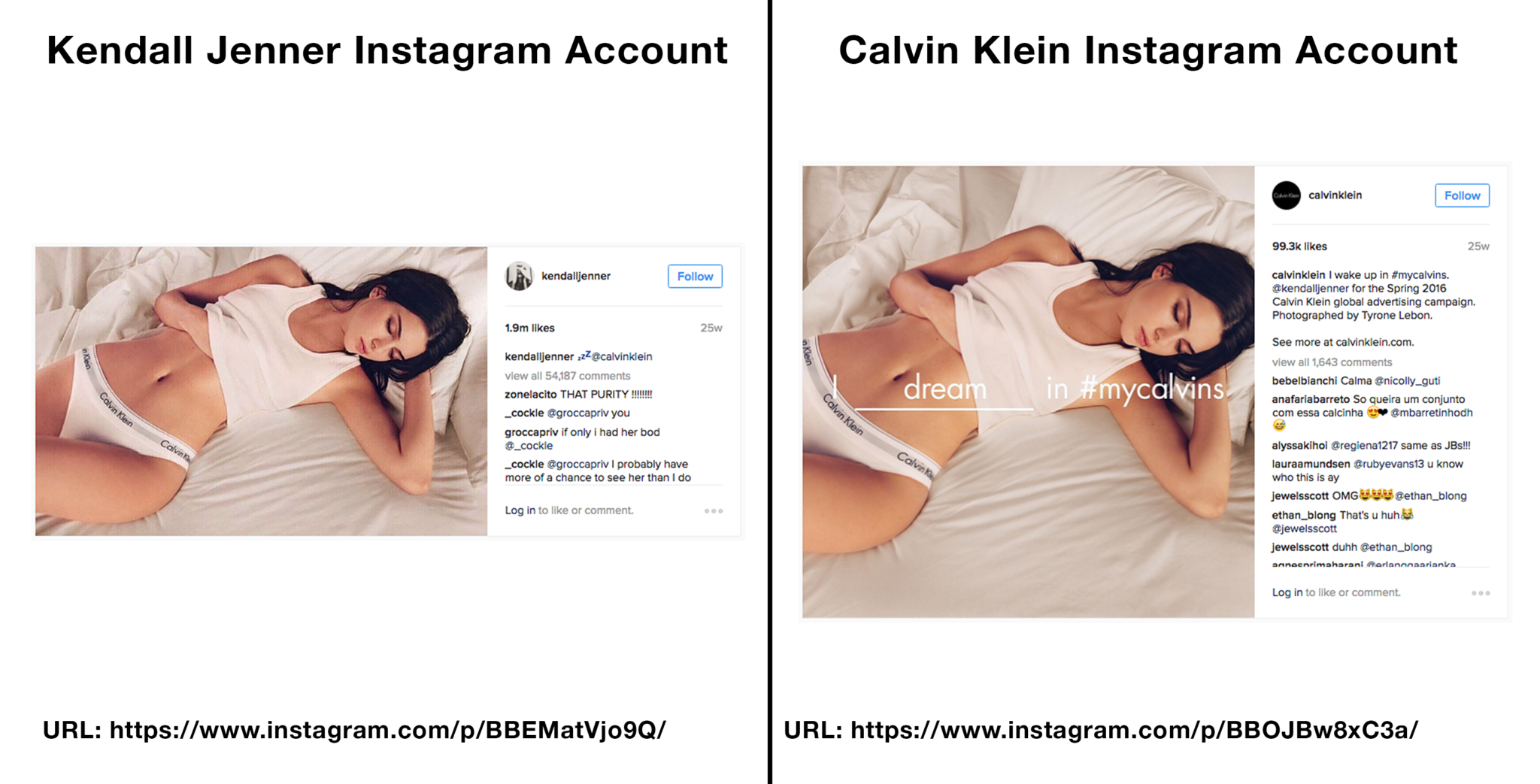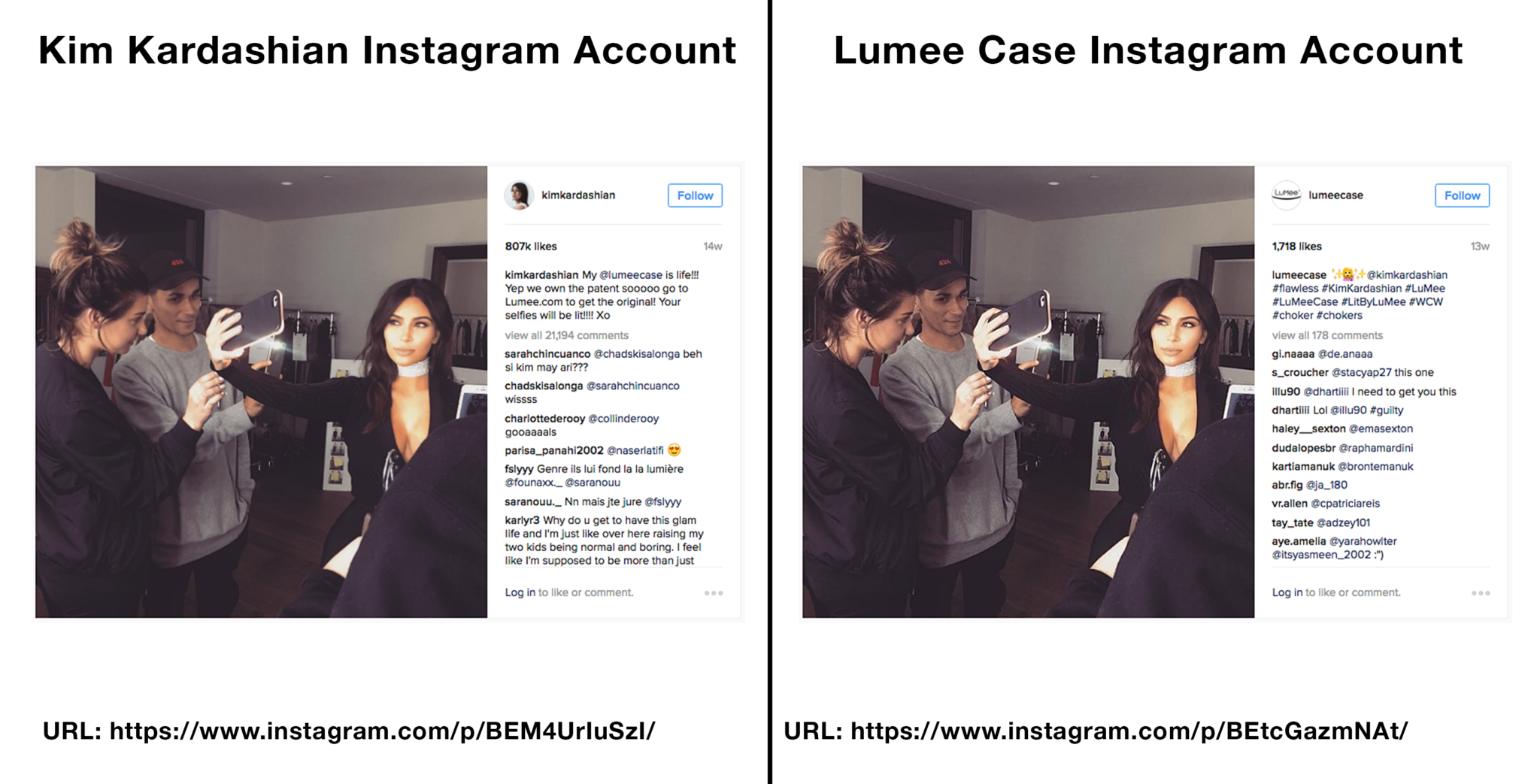Brands
Truth in Advertising Takes on the Kardashians
America’s first family is officially on notice.
Yesterday, Truth in Advertising (TINA)—a consumer advocacy nonprofit—announced in a blog post that it had sent a letter to the Kardashian clan that went something like this: Either stop your deceptive marketing practices or we’ll file a complaint with the Federal Trade Commission (FTC).
With 316 million combined followers on Instagram alone, the Kardashian sisters—Kim, Khloe, Kourtney, and their half-sisters Kendall and Kylie—dominate the platform. All five are in the top 21 most-followed accounts on Instagram (Kim takes the top spot at #6, while Kourtney is keeping up at #21).
When the Kardashians shill for a product on social media, a lot of people see those advertisements. The problem is that people may not realize they’re looking at an ad. If the posts don’t have a disclosure, followers may believe that the Kardashians simply like a product, even though they are actually being paid thousands of dollars to include it in their posts.


According to the FTC’s December 2015 native advertising guidelines, paid posts like the ones above must include clear disclosures. The hashtag #ad is most commonly used, though the agency also recommends terminology like “Paid” and “Advertising.” According to the FTC, simply tagging the brand is not enough, since the audience may not understand that there was a commercial transaction.
The Kardashians have gotten in trouble with federal authorities before. The FDA sent a warning letter to Kim back in 2015 when she posted an ad for a morning sickness drug without disclosing the sponsorship or the drug’s side effects.
TINA likely decided to warn the Kardashians because they are the most high profile example of influencer marketing gone wrong. The episode could bring attention to a recurring problem on platforms like Instagram, where the most-liked post of all time is an undisclosed ad for Coca-Cola from Selena Gomez.
But even though TINA focuses on the Kardashians throughout its blog post and warning letter, the Kardashians probably aren’t at risk for much besides a few days of bad publicity. Precedence suggests that the brands—in this case, Calvin Klein, Puma, FitTea, and many others—will likely be the ones in the crosshairs of any legal recourse.
The FTC’s recently settled complaint against Warner Bros. for an influencer marketing campaign demonstrated that regulatory authorities are placing the onus on brands, not influencers, to ensure proper disclosure. Like TINA, the FTC targeted a high profile influencer—in this case, YouTube megastar PewDiePie—to garner publicity for the complaint, but hit the brand with the actual sanctions.
As Lesley Fair, a senior attorney at the FTC, wrote at the time, “No one knows better than advertisers how to make disclosures clear and conspicuous.”
The FTC, however, has yet to dish out anything approaching a significant punishment. Warner Bros., for example, faced little more than a slap on the wrist. (The FTC is requiring Warner Bros. to educate influencers on legal disclosure, and even withhold payment to those who don’t abide by the rules.)
Instead, TINA and the FTC seem to be hoping that targeting major celebrities and brands will create a cascade effect. If consumers realize their idols are engaging in deceptive marketing, then influencers and celebrities will take care to disclose sponsorships. Brands, meanwhile, generally want to avoid negative publicity.
Kim may have already gotten the message. Yesterday, she posted an Instagram promoting SugarBearHair with #ad at the very start.
https://www.instagram.com/p/BJbEC96h3a5
Score one for TINA.
Image by Creative CommonsGet better at your job right now.
Read our monthly newsletter to master content marketing. It’s made for marketers, creators, and everyone in between.




